Identify 20 signs of a toxic work environment — How to spot them
It’s easy to overlook the subtle signs of a toxic work environment, especially when you’re excited about a potential role.
Yet accepting a position in a toxic workplace can have serious long-term effects on your mental health, career trajectory, and even personal life.
The good news? With the right awareness, you can identify employer red flags well before signing a contract.
Recognizing the signs of toxic workplaces can steer potential employees clear of companies that are more harmful than helpful. Let’s begin!
What is a toxic work environment?
A toxic work environment is characterized by persistent negative behaviors – think bullying, micro-management, lack of support, and poor communication – These create an atmosphere of fear, stress, or burnout. They don’t offer psychological safety, leaving employees under excessive pressure.
A recent survey of over 2,000 employees across various industries in the UK found that 75% of workers have experienced a toxic work environment. Alarmingly, 87% of those affected reported that the toxic culture had a negative impact on their mental health.
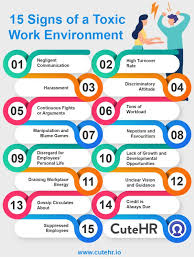
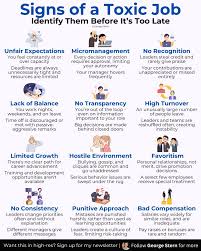
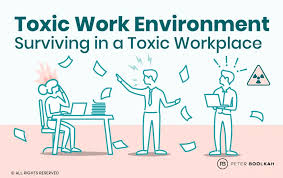
That’s why being able to identify the early signs of a toxic workplace is so crucial. Recognizing the signs of a toxic work environment early on empowers you to make smarter choices. The earlier you spot the workplace red flags, the easier it is to walk away and find a healthier, more supportive role.
Workplace red flags in job descriptions
The first place to look for employer red flags is in the job ad. A job description isn’t just a list of duties – it’s a reflection of how the company views the role and its future employee. Here’s what to watch for:
1. Vague or fluffy descriptions of duties
Phrases like “wear many hats” or “no two days are the same” may sound exciting, but often signal a lack of clear responsibilities. This ambiguity may result in you being pulled in multiple directions without support, often with unrealistic expectations.
2. Exaggerated requirements for entry-level jobs
When a “junior” position requires a decade of experience and multiple advanced certifications, it’s usually a sign that the company wants senior-level results at an entry-level pay. This could also mean the business is poorly resourced and expects employees to fill multiple roles.
3. No mention of salary or benefits
Companies that avoid disclosing pay or offer overly broad ranges (e.g. “£25,000–£60,000 DOE”) may be hiding inadequate compensation or internal inequities. Lack of transparency here can reflect broader issues in how they treat and value employees.
4. Buzzwords that mask dysfunction
Phrases like “fast-paced environment,” “rockstar,” “must thrive under pressure,” or “we’re like a family” often serve as red flags. They can suggest overwork, poor boundaries, lack of professionalism, or cliques.
5. Constantly reposted or “always hiring” roles
If the company continually advertises the same position, this may indicate high turnover, internal chaos, or a revolving-door policy where employees are overworked and burned out within a short period.
6. Lack of focus on development or growth
If a job advert says nothing about training, career progression, or mentorship, it could suggest that the company views employees as disposable rather than investable assets.
Interview red flags
An interview is a two-way street: a chance not only for the employer to assess you, but for you to assess them. Pay attention to these signs of a toxic work environment during interviews:
1. Evasive or vague responses to your questions
If your interviewer can’t clearly explain the team structure, performance expectations, or growth opportunities, they may be masking dysfunction or a lack of internal planning.
2. Disrespectful or dismissive behavior
Interviewers who interrupt you, show up late without apology, check their phones, or speak unprofessionally are often reflecting broader issues within the company culture. This behavior may reflect red flags within the organization.
3. Unclear or shifting role expectations
If the responsibilities keep changing throughout your interview rounds – or if different people describe the role in conflicting ways – it may suggest confusion, poor leadership, or an unstable work environment.
4. Inappropriate or illegal questions
Be cautious about answering personal questions about your age, marital status, religion, or family plans. These are not just red flags – they’re potentially discriminatory and may indicate that diversity and inclusion aren’t valued.
5. Over-emphasis on “culture fit” without explanation
Yes, a cultural fit can be important. But when a company is obsessed with it but cannot define what it means, it may be a code for bias or a cliquish, exclusionary workplace.
6. Rushed interviews or no time for your questions
If the interviewer speeds through the session or doesn’t give you a chance to ask questions, it may signal they don’t value your input – or worse, don’t want you to dig too deeply.
7. Lack of transparency about turnover or team morale
If you ask why the position is open and the answer is vague or defensive, it could mean the last person quit under difficult circumstances – a classic sign of a toxic workplace.
Red flags during the offer stage
If you’ve made it through to the offer stage, congratulations! However, don’t let your guard down. Some of the biggest workplace red flags reveal themselves here:
1. No written offer or contract
A verbal offer without written confirmation is a major risk. Without documented terms, you’re vulnerable to sudden changes in salary, responsibilities, or benefits.
2. Unpaid trial work or tests that feel like free labor
While skills assessments are normal, asking you to complete unpaid projects that resemble actual work can be exploitative. If they benefit from your output without compensation, that’s a red flag.
3. Requests for personal or financial information too early
No legitimate company should ask for your passport, bank details, or National Insurance number before an official offer is made and accepted.
4. Vague or “we’ll figure it out later” start dates
A company that is unsure of when you’ll start or gives unclear answers about onboarding may be poorly organized or experiencing internal chaos.
5. High turnover or a revolving door reputation
Use platforms like Glassdoor or LinkedIn, or even send a polite LinkedIn message to a former employee, to see if the role has had frequent occupants. Constant churn often points to deep-rooted problems.
6. Pushy behaviour about your decision timeline
A company that demands an answer within 24 hours or tries to guilt-trip you into accepting quickly is using pressure tactics. This often reflects desperation, lack of planning, or a coercive management style.
7. Poorly defined benefits or “we don’t really do time off”
Any employer who minimizes paid leave, doesn’t offer sick days, or laughs off questions about mental health support should raise a serious alarm. These are signs of a toxic work environment that fails to prioritize employee well-being.
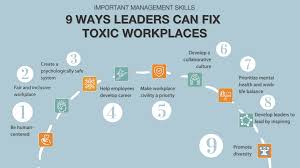
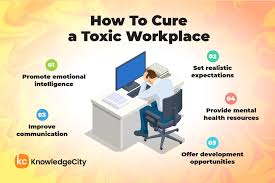

Start profiting from your traffic—sign up today!
Start earning passive income—join our affiliate network today!
Earn passive income on autopilot—become our affiliate!